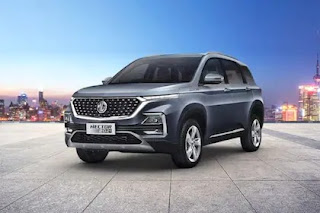Latest Electric Cars Are Going To Rule The Road
Latest Electric cars have the greatest impact on reducing the demand for fossil fuels and are more environmentally friendly.
Specifically, an electric vehicle is defined as a vehicle driven by one or more electric motors that uses electrical energy stored in some form of energy storage device (such as a battery). An electric vehicle that has both an electric motor and an internal combustion engine is a hybrid vehicle and is not classified as an electric vehicle.
The world's first real electric car was made in 1888 by the German manufacturer Flocken Elektrowagen. Latest Electric cars in India were popular in the late 19th and early 20th centuries. The technological advancement of internal combustion engines, coupled with the mass production of internal combustion engine vehicles, has made them cheaper, leading to a decline in electric vehicles. During the fuel crisis of the 1970s and 1980s, there was a resurgence of interest in electric vehicles, but this was short-lived. Electric cars in the 1970s and 1980s were expensive, with large batteries and slow charging. Even if they were fully charged, their driving distance was limited. Faced with so many disadvantages, these early electric vehicles have never been put into mass production. However, since 2008, with the development of battery technology and smaller, lighter and more efficient electric motors, electric vehicle manufacturing has emerged. With the increase in crude oil prices and the publicly recognized need to reduce greenhouse gas emissions, the sales of electric vehicles have increased year by year in the past five years.
The advantage of electric cars over cars in India with internal combustion engines is a significant reduction in air pollution, because electric cars do not emit exhaust pollutants. The reduction of greenhouse gases reduces the rate of depletion of the ozone layer and slows down global warming. The reduction in overall consumption of fossil fuels also reduces dependence on foreign oil, thereby reducing concerns about oil prices and supply disruptions.
Electric vehicles still face obstacles. The main obstacles are high purchase costs, lack of charging infrastructure, and drivers worry that the battery will run out of energy before reaching the destination. However, these shortcomings are being resolved quickly. Many service stations and many cities are installing charging equipment. More charging facilities will eliminate "range anxiety", which is the fear that the battery will run out before reaching the destination. The cost of introducing all new technologies is high at first, but as demand increases, followed by production, purchasing prices fall. The gap between electric vehicles and fossil fuel-powered vehicles has been narrowing.
The leader in electric vehicle sales in 2012 was Japan, with a global market share of 28%. This is followed by the United States with 26% of the market, followed by China with 16%, followed by France with 11% and Norway with 7%.

Comments
Post a Comment